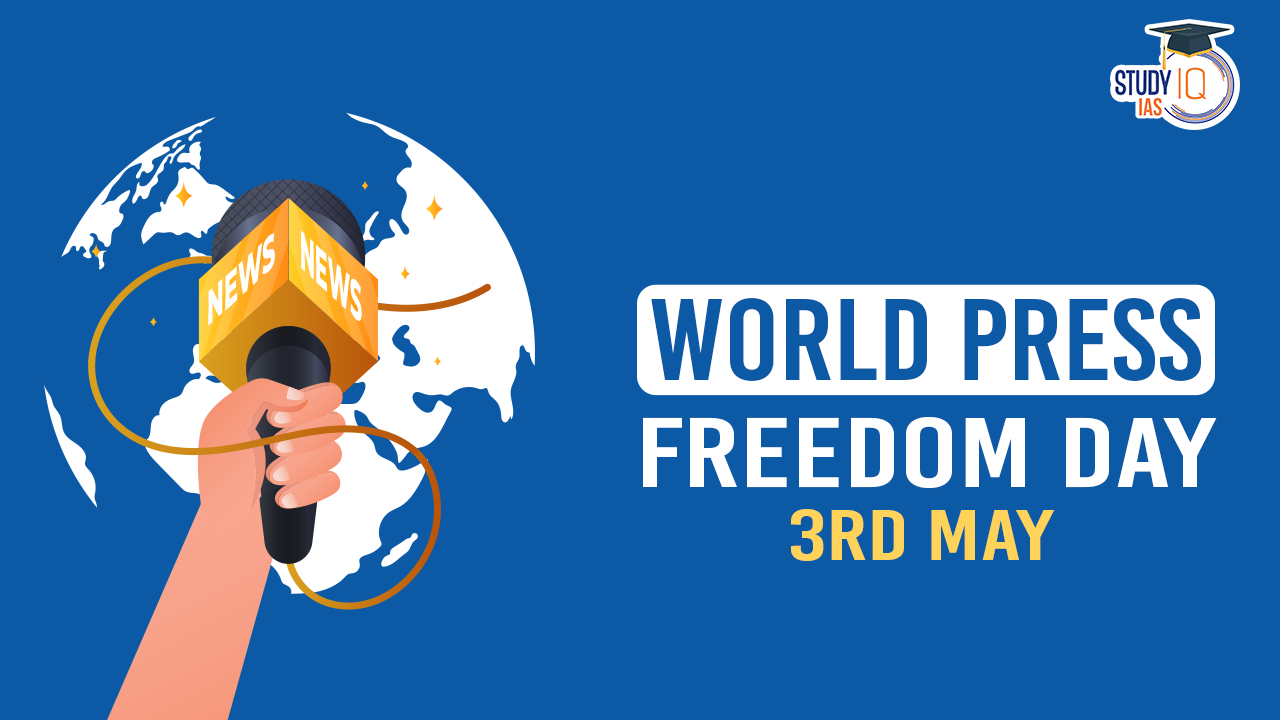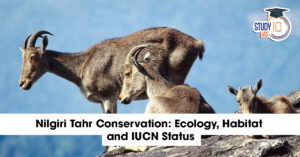Table of Contents
World Press Freedom Day 2025 is a global observance that highlights the importance of freedom of the press and the fundamental role of journalism in strengthening democracy. Held annually on May 3, the day honors journalists around the world who risk their lives to bring truth to the public. In an era of misinformation, propaganda, and increasing attacks on media personnel, World Press Freedom Day 2025 becomes even more relevant and powerful.
World Press Freedom Day 2025
World Press Freedom Day 2025, observed on May 3, highlights the vital role of a free and independent press in upholding democracy and justice. The 2025 theme, “Journalism in the Face of the Environmental Crisis,” underscores the importance of environmental reporting amid rising climate challenges. It honours journalists who risk their lives to expose ecological destruction and hold power to account.
The day traces its roots to the 1991 Windhoek Declaration, advocating media freedom worldwide. Celebrated globally through conferences, media campaigns, and awareness drives, this day reminds the world that press freedom is essential for truth, transparency, and informed societies.
Also Read: Freedom of the Press in India
World Press Freedom Day 2025 Theme
The theme for World Press Freedom Day 2025 is “Journalism in the Face of the Environmental Crisis”. It emphasises the essential role of independent journalism in reporting environmental degradation, climate change, and sustainability issues. Journalists are instrumental in holding corporations and governments accountable for ecological harm while educating the public on urgent environmental challenges.
World Press Freedom Day History
World Press Freedom Day was established by the United Nations General Assembly in 1993, following a recommendation from UNESCO’s General Conference. The day traces its origin to the Windhoek Declaration, a landmark statement made on May 3, 1991, in Windhoek, Namibia, advocating for a free, independent, and pluralistic press in Africa and across the globe.
Key Historical Milestones:
-
1991: Windhoek Declaration adopted by African journalists in Namibia.
-
1993: The UN General Assembly officially proclaims May 3 as World Press Freedom Day.
-
2001-present: Annual conferences and global campaigns initiated by UNESCO.
World Press Freedom Day Significance
- The goal of World Press Freedom Day is to increase public understanding of the importance of press freedom, the need to protect journalists’ rights, and the importance of promoting independent, free media.
- It highlights the significance of protecting journalists and ensuring that they can publish news without fear of punishment while also serving as a reminder of the significant role that journalists play in democracies and the importance of defending the right to knowledge and freedom of expression.
- The importance of the right to free expression, which is a fundamental human right recognised in Article 19 of the Universal Declaration of Human Rights, is brought to light by World Press Freedom Day.
- Free and independent media are essential to promote transparency and accountability in the government and other institutions.
- The day serves as a reminder of the importance of journalists in holding the powerful accountable and making sure that the general people has access to accurate and unbiased information.
World Press Freedom Day Celebrations
- UNESCO Global Conference – Panels, workshops, and keynotes on the annual theme.
- Press Freedom Prize – UNESCO/Guillermo Cano Prize awarded to a courageous journalist.
- Media Campaigns – Special reports, features, and documentaries aired worldwide.
- Social Media Awareness – Hashtags like #WPFD2025 trend; infographics and tributes shared.
- Educational Events – Debates, essays, and seminars in schools and colleges.
- Tributes & Vigils – Honouring journalists who died or were attacked for their work.
- Policy Dialogues – Governments and NGOs discuss legal protections for press freedom.
World Press Freedom Index 2025
-
Global Classification: For the first time, RSF has categorised the global state of press freedom as a “difficult situation,” with the average score dropping to 55 out of 100—a record low.
-
Top-Ranked Countries:
-
Norway
-
Estonia
-
Netherlands
-
-
Bottom-Ranked Countries:
-
Eritrea (180th)
-
North Korea (179th)
-
China (178th)
-
India’s Position
-
Rank: 151 out of 180 countries
-
Score: 32.96
-
Category: “Very Serious” situation
India’s rank has improved slightly from 159 in 2024, yet it remains in the most critical category. RSF highlights concerns over media ownership concentration among politically affiliated individuals, threatening media plurality.
| Evaluation Criteria |
The score for each country or territory is determined using five contextual indicators:
|
World Press Freedom Index 2025 List
The World Press Freedom Index bases its ratings and country rankings on five different variables. Below is a complete list of the top 10 countries in the World Press Freedom Index 2025:
Top 20 Countries
| Rank | Country | Score | Notes |
|---|---|---|---|
| 1 | Norway | 92.31 | Maintains top position for the 9th consecutive year |
| 2 | Estonia | N/A | Climbed 4 spots to 2nd place |
| 3 | Netherlands | N/A | Moved up one position to 3rd place |
| 4 | Sweden | N/A | Dropped one place to 4th |
| 5 | Finland | N/A | Remained static at 5th |
| 6 | Denmark | N/A | Fell four spots to 6th |
| 7 | Ireland | N/A | Retained 7th position |
| 8 | Portugal | N/A | Improved to 8th place |
| 9 | Switzerland | N/A | Climbed to 9th position |
| 10 | Germany | N/A | Dropped from 10th to 11th due to increased hostility towards journalists |
| 11 | Austria | N/A | Advanced to 10th place |
| 12 | Iceland | N/A | Maintained 12th position |
| 13 | Luxembourg | N/A | Held steady at 13th |
| 14 | Belgium | N/A | Remained at 14th place |
| 15 | United Kingdom | N/A | Stayed at 15th position |
| 16 | New Zealand | N/A | Ranked 16th, the highest outside Europe |
| 17 | Canada | N/A | Positioned at 17th place |
| 18 | Australia | N/A | Held 18th position |
| 19 | Czech Republic | N/A | Ranked 19th |
| 20 | Slovakia | N/A | Secured 20th place |
Bottom 10 Countries
| Rank | Country | Score | Notes |
|---|---|---|---|
| 171 | Russia | N/A | Dropped 9 places due to state control over media |
| 172 | Nicaragua | N/A | Government eradicated independent press |
| 173 | Iran | N/A | Continued suppression of media freedom |
| 174 | Syria | N/A | Ongoing conflict hampers press freedom |
| 175 | China | N/A | Dropped six spots due to increased censorship |
| 176 | North Korea | N/A | Maintains strict control over media |
| 177 | Eritrea | N/A | Ranked last, with no independent media |
| 178 | Afghanistan | N/A | Press freedom severely restricted |
| 179 | Turkmenistan | N/A | State-run media dominates |
| 180 | Belarus | N/A | Harsh crackdown on independent journalism |
-
India: Ranked 151st with a score of 32.96, categorized under “very serious” situation. The slight improvement from 159th in 2024 is overshadowed by concerns over media ownership concentration and threats to plurality.
-
United States: Dropped to 57th, its lowest ranking ever, attributed to economic pressures and political interference affecting media independence.
-
Taiwan: Climbed three spots to 24th, becoming the top-ranked in East Asia, despite its score remaining nearly unchanged.
Conclusion
World Press Freedom Day 2025 serves as a crucial reminder of the media’s role in safeguarding democracy and environmental truth. As the climate crisis intensifies, the press must remain free to report without fear. On May 3, 2025, let’s reaffirm our commitment to protecting journalists, defending freedom of expression, and promoting truth in an age of rising ecological urgency and digital disinformation.


 Graphic Processing Units (GPUs) – Work...
Graphic Processing Units (GPUs) – Work...
 Gold Imports and the Indian Economy – ...
Gold Imports and the Indian Economy – ...
 Nilgiri Tahr Conservation: Ecology, Habi...
Nilgiri Tahr Conservation: Ecology, Habi...




















